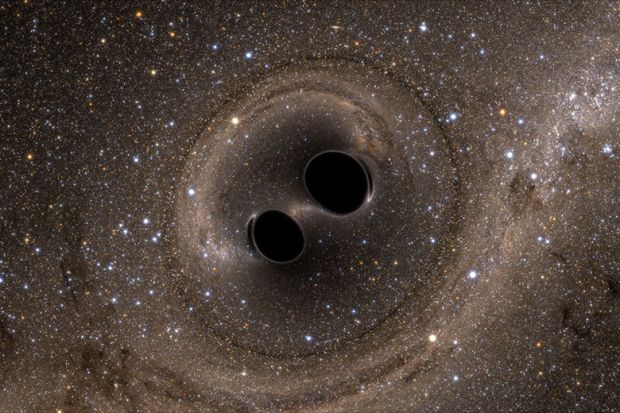A University of Oxford mathematician who collaborated with Stephen Hawking on the theory of general relativity has been awarded this year’s Nobel Prize in Physics alongside a German astrophysicist and a US astronomer.
Roger Penrose, emeritus Rouse Ball professor of mathematics at Oxford, was awarded the honour on 6 October “for the discovery that black hole formation is a robust prediction of the general theory of relativity”.
The 89-year-old professor, who shared the 1988 Wolf Prize in Physics with the late Professor Hawking for their creation of the Penrose-Hawking singularity theorems, was awarded a half-share of the SKr10 million (£951,000) prize by the Royal Swedish Academy of Sciences.
The other half will be shared by Reinhard Genzel, director of the Max Planck Institute for Extraterrestrial Physics, in Garching, Germany and a professor at the University of California, Berkeley, and Andrea Ghez, a New York-born professor at University of California, Los Angeles’ department of physics and astronomy, who is only the fourth woman to win the Nobel Prize in Physics.
Both are recognised “for the discovery of a supermassive compact object at the centre of our galaxy”.
Announcing the awards at the Karolinska Institute in Stockholm, the Nobel committee explained that Professor Penrose’s “ingenious mathematical methods” had proved that “black holes are a direct consequence of Albert Einstein’s general theory of relativity”, despite the fact that “Einstein did not himself believe that black holes really exist”.
“In January 1965, ten years after Einstein’s death, Roger Penrose proved that black holes really can form and described them in detail; at their heart, black holes hide a singularity in which all the known laws of nature cease,” said the Nobel committee, adding that his “groundbreaking article is still regarded as the most important contribution to the general theory of relativity since Einstein”.
Welcoming the Nobel panel’s decision, the UK’s astronomer royal Lord Rees, a former president of the Royal Society, said that Professor Penrose had “a 60-year record of creativity”.
“There would be a consensus that Penrose and Hawking have done more than anyone else since Einstein to deepen our knowledge of gravity,” tweeted Lord Rees.
“Sadly, this Nobel award was too much delayed to allow Hawking to share the credit,” he added.
Professor Genzel and Professor Ghez had also made “discoveries about one of the most exotic phenomena in the universe, the black hole”, said the Nobel committee.
While Professor Penrose, who studied at UCL before taking a PhD at the University of Cambridge, showed that the general theory of relativity leads to the formation of black holes, “Reinhard Genzel and Andrea Ghez discovered that an invisible and extremely heavy object governs the orbits of stars at the centre of our galaxy”, it said, adding that “a supermassive black hole is the only currently known explanation”.
“The discoveries of this year’s laureates have broken new ground in the study of compact and supermassive objects,” said David Haviland, chair of the Nobel Committee for Physics.
“But these exotic objects still pose many questions that beg for answers and motivate future research – not only questions about their inner structure, but also questions about how to test our theory of gravity under the extreme conditions in the immediate vicinity of a black hole,” he added.
Register to continue
Why register?
- Registration is free and only takes a moment
- Once registered, you can read 3 articles a month
- Sign up for our newsletter
Subscribe
Or subscribe for unlimited access to:
- Unlimited access to news, views, insights & reviews
- Digital editions
- Digital access to THE’s university and college rankings analysis
Already registered or a current subscriber? Login








